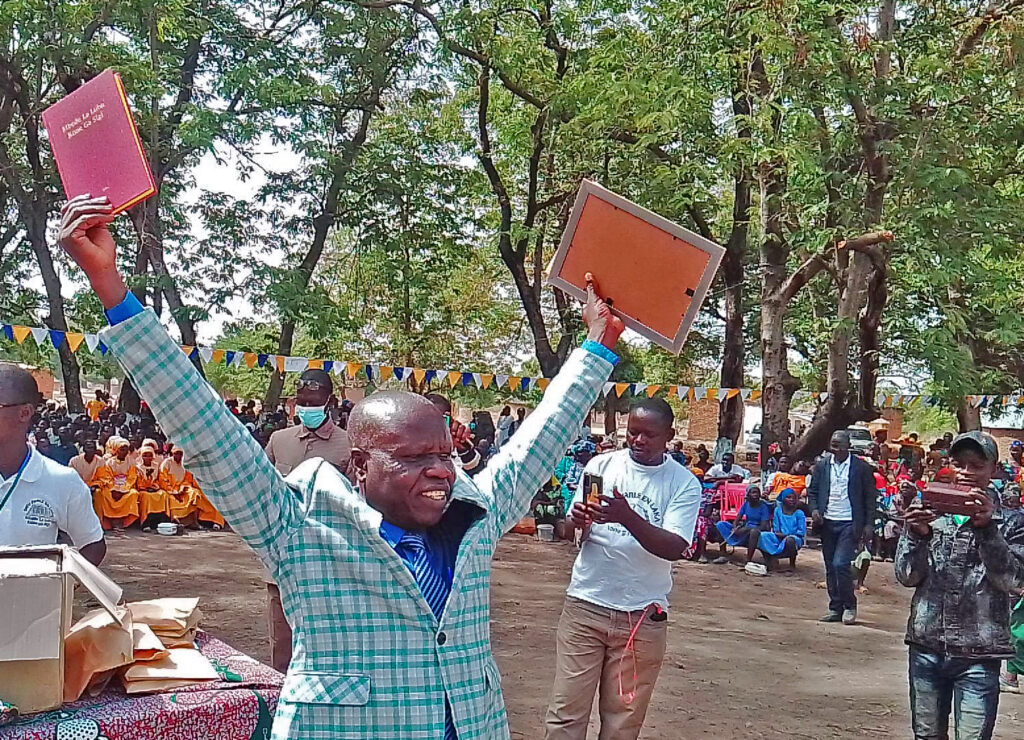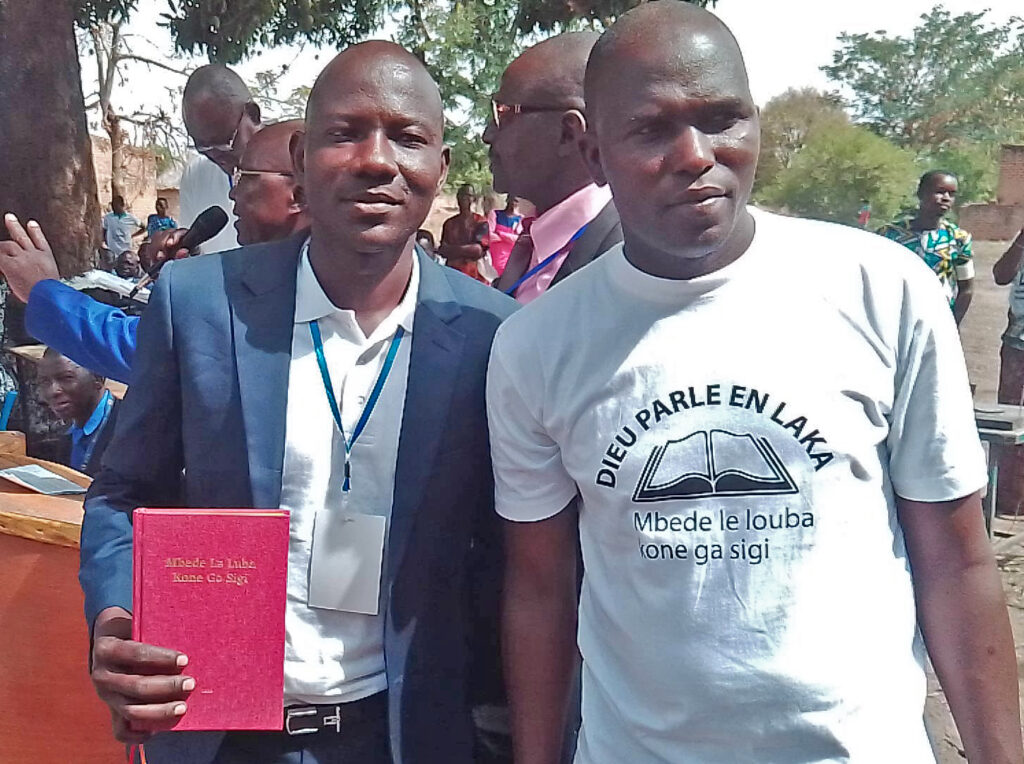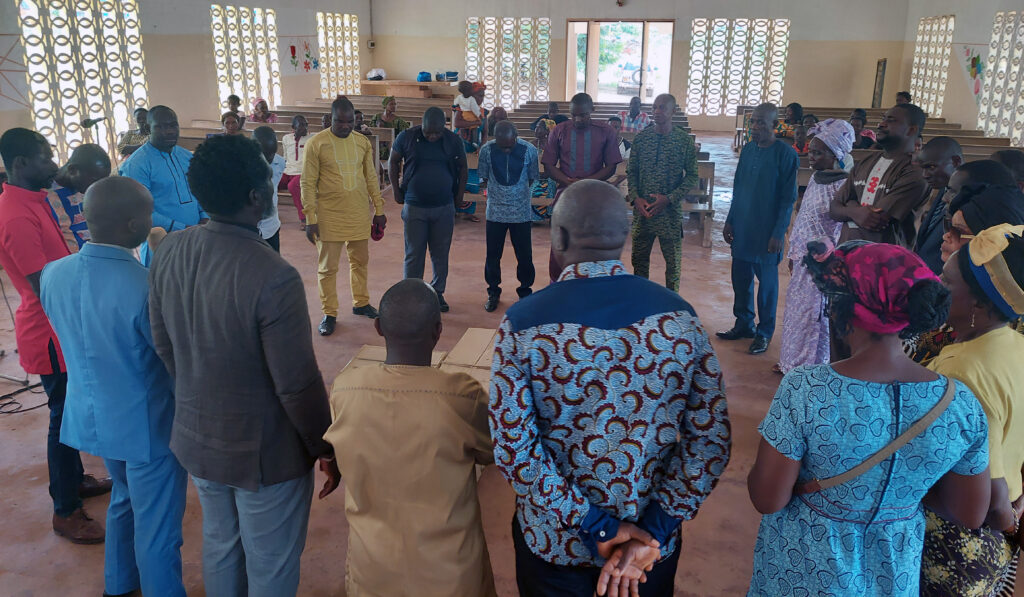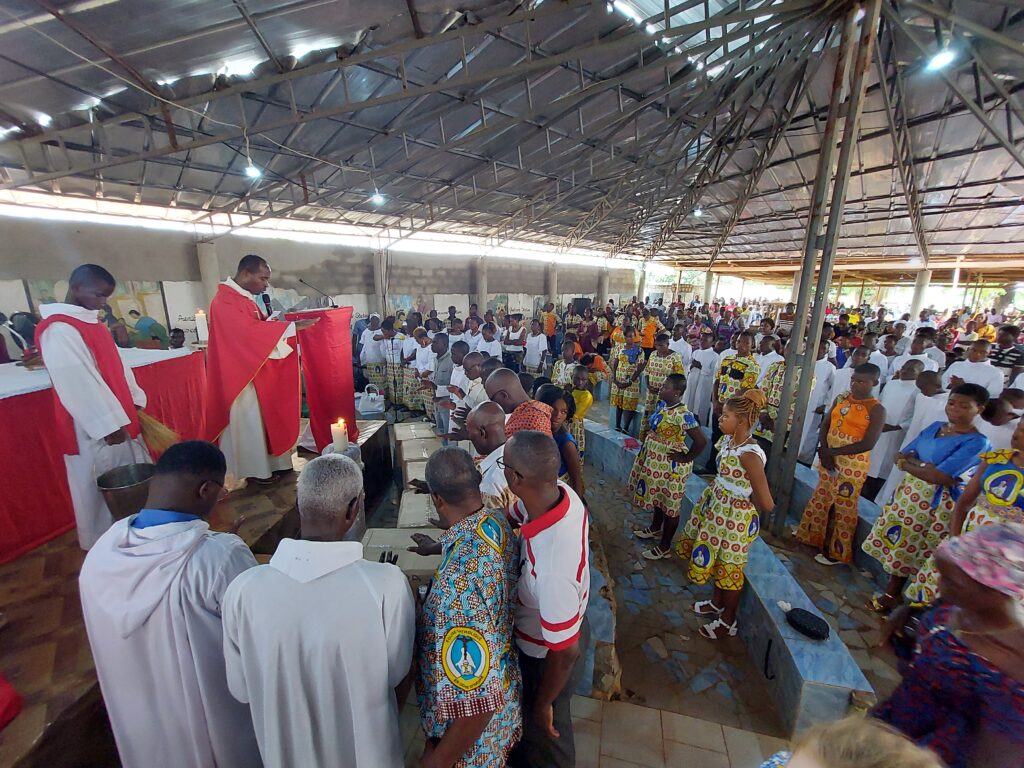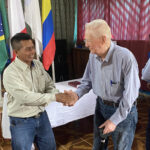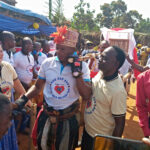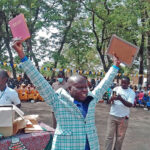Scary Weekend*
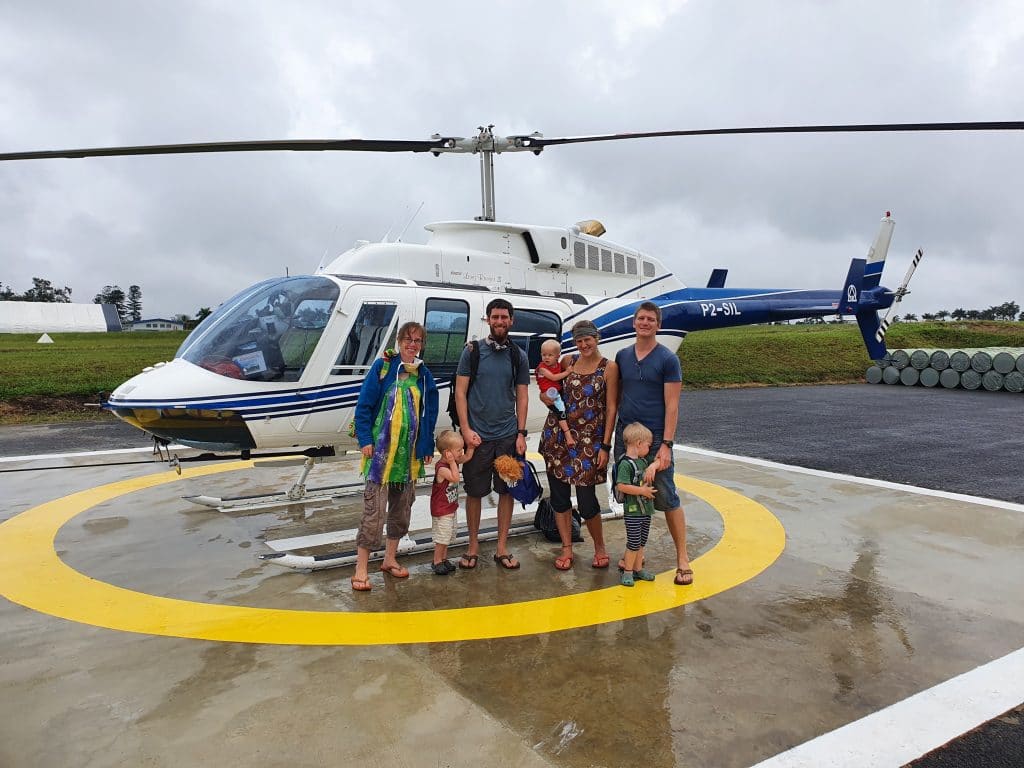
See a video of their arrival in Kovol here.
Steve and Gerdine had just flown back to Kovol from their mission center in Goroka. They were expecting to stay for Christmas and then pack up, say their goodbyes, and fly out for home assignment in the United Kingdom on December 31. They soon discovered that an earthquake had shaken up their house while they were in Goroka and left much in disarray. Oh well, just more to set to rights when they closed up the house before their departure.
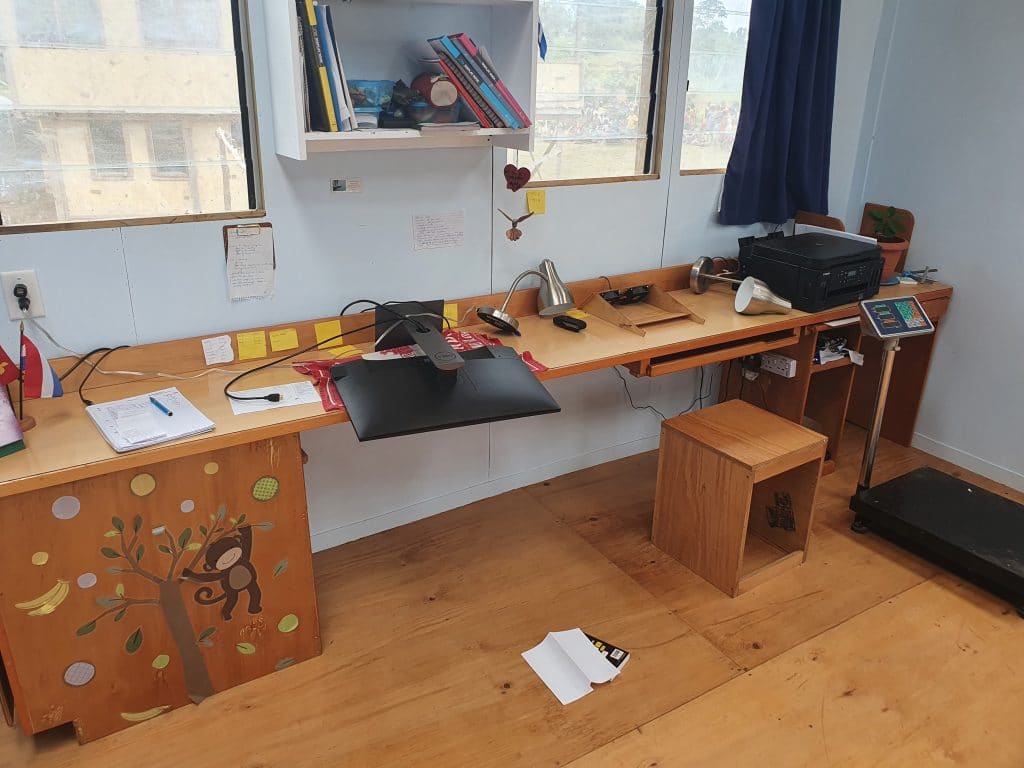
They were just settling in when Gerdine, who is pregnant with twins, started to feel regular cramping. It wasn’t intense, but the regularity was concerning. She started timing the cramps with her phone—they were coming every seven minutes. And they didn’t go away, even after 24 hours. They were always at a level where she could ignore them if she was doing something, but she was experiencing consistent burst of cramps seven minutes apart—even at three a.m. in the middle of the night.
They called their mission doctor back in Goroka on Sunday morning. He was as concerned as Steve and Gerdine, suggesting that if the cramping didn’t settle down soon they needed to fly back to Goroka for an ultrasound. Gerdine then went onto strict bed rest. Their fear grew, the cramps stayed, and they had no idea if the situation was normal or the beginning of preterm labor.
They knew they couldn’t stay with the unknown, so far from medical help. That’s when they called on SIL Aviation for help. The helicopter schedule worked best to fly them out on Monday, and so it was arranged. While Gerdine rested, Steve spent Sunday packing up their house for their return to the UK, cramming two weeks’ worth of transition and goodbyes into a frantic day of bustling. “We cried, we wrestled with fear and on Sunday night Gerdine began coming to terms with the fact that we might have lost one or both of our twins,” Steve says.
They had little time to say goodbye to the Kovol people before they left them for several months, but the Kovol were very forgiving. “It’s OK,” they said. “It’s life; it’s really important. You need to get out and find out if something is wrong.” Philip and Natalie Hansen, their coworkers, will be on their own for the next few months to continue the work of creating a Kovol dictionary.
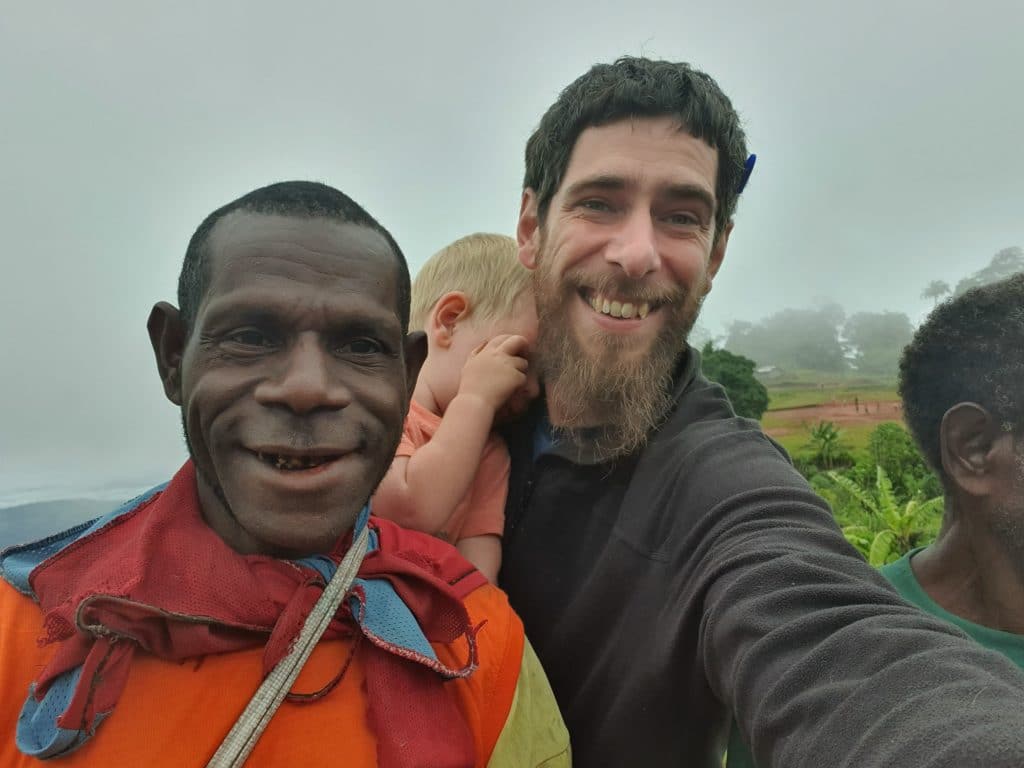
The weather was questionable on Monday. Steve and Gerdine’s hearts were in their mouths as they prayed for a break in the clouds but after some trying Gavin Jones, the SIL Aviation helicopter pilot, managed to get in around and fly them out to Goroka. They landed directly on the soccer field of their support center and went immediately to the clinic. What a relief it was! The doctor could hear two heartbeats; both babies were still growing, and there were no signs of anything going wrong. That transportation provided by SIL Aviation was a vital link to much needed medical care for the anxious family.
Steve reflects on their nerve-wracking experience: “We cried; we were so grateful and relieved. What an immense challenge it was to work through the fear of thinking we might be losing our twins. We live with the knowledge that in such a remote location we don’t have quick access to health care in an emergency. It’s a weight we always carry while in Kovol. … Occasionally [after some kind of near miss], we’ll look at the thick bank of clouds around us and realize there’s no way a helicopter could get in if we needed one, that we need to trust the Lord through those fears. Our daily battle is to bring glory to God by trusting him.”
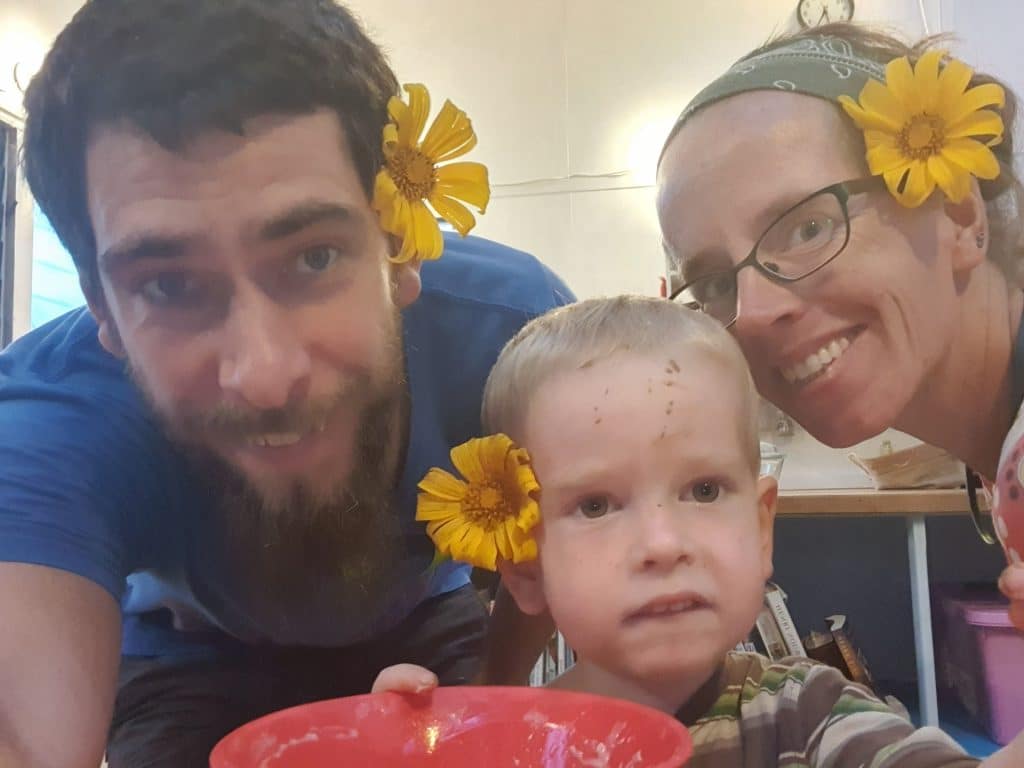
The Stanleys spent several weeks in Goroka and are now back in the UK, settled into their flat, very thankful their long journey from PNG was uneventful. The tension of the last month is now released, but they look back to a time when heads and emotions were spinning. They remember the deep, stomach-churning fear that they might have a hitch in their trip and be stuck overseas with Gerdine’s delivery date creeping closer.
Steve describes moments of both strength and weakness during their month of uncertainty. “Trusting God for me wasn’t expecting smooth sailing and no problems. After all, we follow a crucified Lord. God provides and God loves us, but he sometimes asks us to walk hard roads we would never choose. Sometimes he allows the worst thing imaginable to actually happen and shows his power by bringing joy and life out of misery and death—as in the cross. When God promises that ‘all things work for the good of those that love him,’ I believe it. But when the helicopter picked us out of Kovol and headed straight for the medical clinic, I was scared it was [our] time to walk a harder road.”
Now that they are home in the UK awaiting the birth of their twins, Steve asks, “Did we grow? Has ‘steadfastness’ and ‘maturity of character’ been the result?” (James 1:2—3). He is still evaluating their experience to learn from it. They hope to return to ministry in Kovol after their home assignment.
*Based on information provided by Steve Stanley and Gavin Jones.
**In addition to transporting Wycliffe translators and literacy workers, SIL Aviation often provides transportation service for translators and language workers from fellow mission organizations.






























































